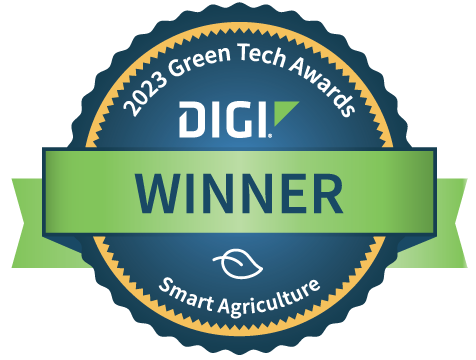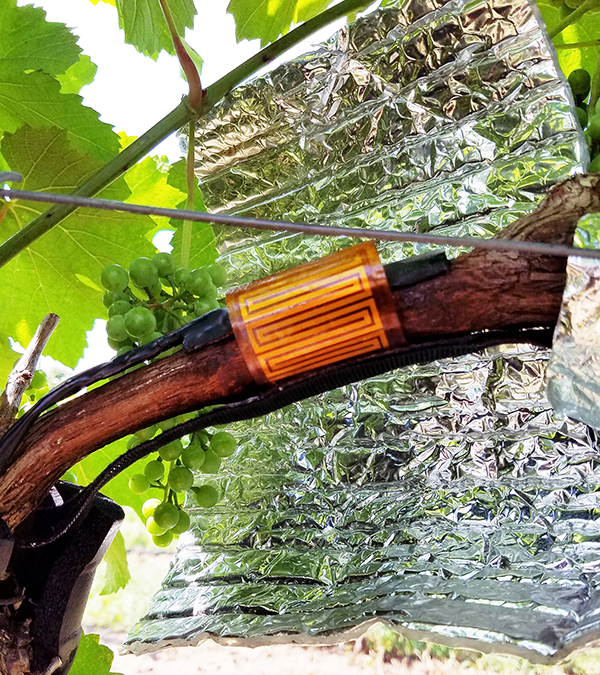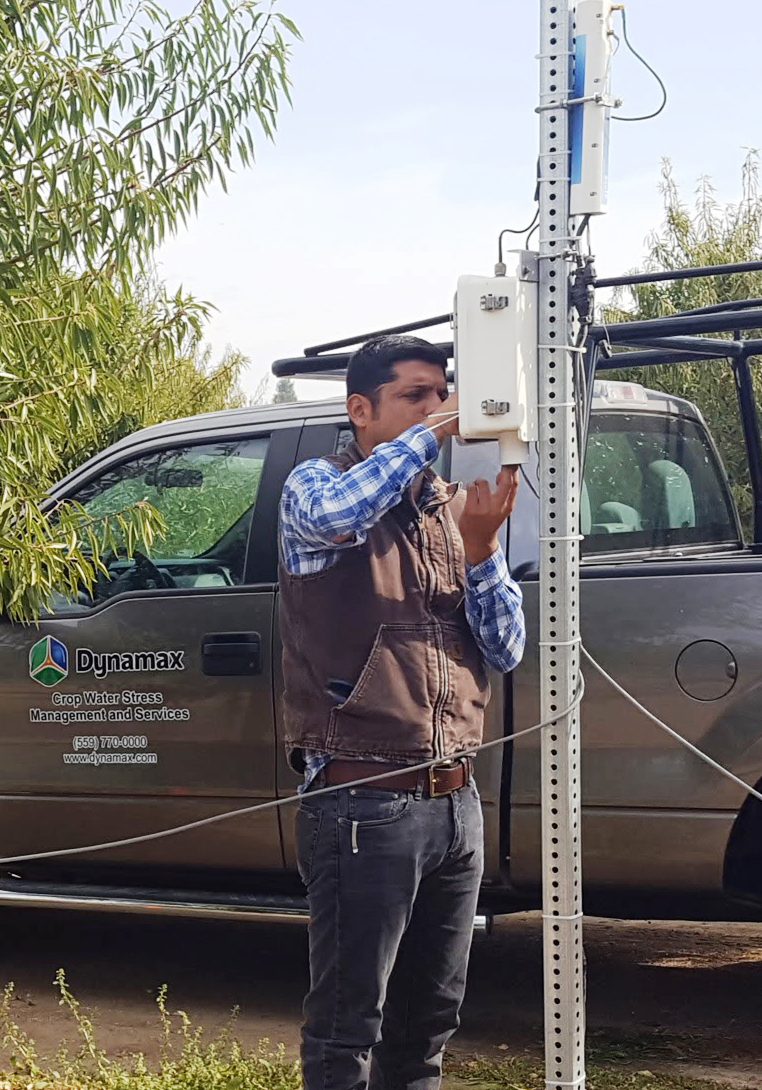From tomatoes and bell peppers to nuts, olives, and grapes, optimal irrigation can spell the difference between a bumper crop of healthy plants or costly failures that threaten a farm’s viability. Dynamax, a global leader in plant-monitoring instrumentation, provides high-grade sensors and monitoring systems for professional, educational, industrial, governmental, and commercial growers to better manage plant, soil, water, solar, and wind resources. The company’s precision agriculture solutions provide the vital link between the plant and its environment.
“How Much Water Should We Use?”
 It’s the crucial question every farmer and grower asks on a daily basis: “How much water should we use on these plants?” Getting the right answer — quickly and consistently — can have a significant and positive impact on crop yields, profitability, and use of precious resources. Until recently, of course, that answer primarily relied on weather forecasts, experience, and intuitive hunches.
It’s the crucial question every farmer and grower asks on a daily basis: “How much water should we use on these plants?” Getting the right answer — quickly and consistently — can have a significant and positive impact on crop yields, profitability, and use of precious resources. Until recently, of course, that answer primarily relied on weather forecasts, experience, and intuitive hunches.

The health and well-being of our planet depend on water resources that are becoming increasingly scarce due to urban sprawl and population growth. Agricultural productivity and our quality of life depend on water, water quality, and water-efficient plant production.
That’s why precision agriculture leaders like Houston-based Dynamax are helping farmers achieve vastly increased crop efficiencies by measuring soils and sap flow, integrating wind and solar metrics, soil readings, and more to optimize water usage, lower costs and waste, and improve yields.
“It’s the science of sap flow,” explained Mike van Bavel, president of Dynamax. “We’re measuring the entire transpiration process — the movement of water through the plant — from the soil to the roots to the leaves. “Our company has built sophisticated instruments and gauges that wrap around plants so we can pinpoint the rate that water is flowing through the plant and calculate how much water that plant should receive in order for it to achieve optimal growth and harvestable yield.”
Fine-Tuning the Irrigation Effort
 Dynamax’s flagship solution, the SapIP-TDP Sap Velocity system, deploys up to six sap velocity probes connected to a single SapIP node — each sufficient to monitor several individual plants. This allows farmers to distribute small SapIP-TDP nodes up to 1,600 feet apart throughout their fields and collect data using a single wireless modem. Each device uses a Digi XBee® SX 900 MHz RF module that transmits data at 900 MHz to a Digi XBee gateway, which aggregates and sends that data to Dynamx’s AgriSensors monitoring dashboard.
Dynamax’s flagship solution, the SapIP-TDP Sap Velocity system, deploys up to six sap velocity probes connected to a single SapIP node — each sufficient to monitor several individual plants. This allows farmers to distribute small SapIP-TDP nodes up to 1,600 feet apart throughout their fields and collect data using a single wireless modem. Each device uses a Digi XBee® SX 900 MHz RF module that transmits data at 900 MHz to a Digi XBee gateway, which aggregates and sends that data to Dynamx’s AgriSensors monitoring dashboard.
Digi XBee modules provide reliability and redundancy for low-power, mission-critical wireless devices. They use the DigiMesh® networking protocol, featuring redundant mesh network operation and support for low-power sleeping nodes. With RF line-of-sight ranges up to 65 miles and strong interference blocking, these modules are ideal for applications requiring the combination of range, data redundancy, and data reliability.
Digi’s XBee gateways provide remote networking connectivity for commercial grade and rugged outdoor applications. These gateways have a range of available features in compact commercial-grade and industrial enclosures. Interface options include Ethernet, serial and Zigbee/RF for flexible connectivity to virtually any remote device.
And all of the deployed devices and networks are centrally monitored using Digi Remote Manager®, a cloud-based platform that facilitates easy setup, mass configuration, maintenance and support for hundreds or even thousands of remote Digi devices.
“We are very happy that we went with Digi,” van Bavel said. “Not only are the products superior, but Digi backs that with a lot of support and service. The Digi Wireless Design Services team helped us write gateway code and helped us with data formatting. They were a huge part of this success.”
Carefully Controlling Irrigation
Digi Remote Manager plays a key role as well. “Every time we establish a network at a customer site, we use Digi RM to verify the connectivity of every device,” van Bavel said. “We can see if there are any transmission or sequencing problems. We can sleep or wake the devices, and we can update the gateways as well.”
According to van Bavel, the Sap-IP solution is ideal for irrigation-critical crops, and the company enjoys a strong presence among growers of tomatoes and bell peppers. “We also are popular in Napa Valley,” he said. “We have about 200 viticulturists relying on us to determine the health and water requirements of grape growing. They use that data to fine-tune their plants’ growth. Some want to optimize for quality and intensity of flavor. Others are more interested in ensuring a higher quantity of grapes, while carefully managing water usage. They can make their plants respond by carefully controlling the irrigation.
“We’re monitoring this data continuously. We take readings every minute, average them every 15 minutes, and report the data hourly. We present that data on dashboards, and we send out weekly recommendations to farmers and growers for adjustments to their water regimens so that they get the most robust plants possible. Ultimately, it helps our customers put the right resources into the right plants at the right time — and that means healthier plants and a more productive farm, while supporting sustainability and reducing the impact on the planet.”
Connect with Digi
Seeking next-generation solutions and support? Here are some next steps: